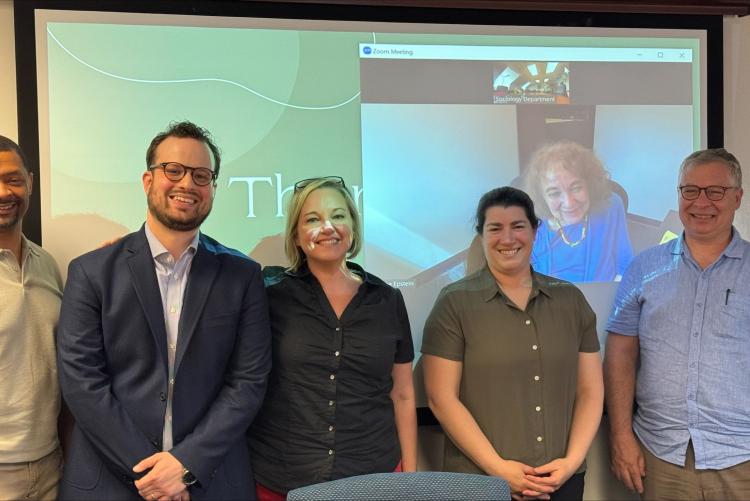Barriers and Pathways to Educational Opportunity for Low-Income Families: Qualitative Evidence from an Experimental Intervention
JOSEPH BOSELOVIC SUCCESSFULLY DEFENDS HIS DISSERTATION

Joseph Boselovic (left) standing with faculty of the JHU Sociology department.
Low-income families disproportionately enroll in schools with lower levels of educational resources and academic achievement and higher levels of student poverty as compared to middle-class families. Economic school segregation is an important mechanism that contributes to inequalities in children’s educational and life outcomes.
Existing explanations for why low-income families often attend low-quality schools emphasize that high-performing schools are located in low-poverty neighborhoods where low-income families cannot afford to live. Low-income parents also face barriers to learning about high-performing schools and potential concerns over whether they provide a good fit for their children. However, evidence indicates that interventions with the potential to address barriers – housing vouchers, school choice programs, and informational interventions – have had limited efficacy. The shortcomings of these efforts indicate additional barriers constraining low-income families’ school choices that remain unexplained.
This dissertation addresses this gap in the literature by leveraging longitudinal interviews with a racially diverse sample of over 100 parents who participated in an experimental housing intervention. The intervention tested whether supplementing housing vouchers with counseling, customized search assistance, and short-term financial assistance increased the likelihood of families moving to low-poverty neighborhoods. This dissertation explores how families chose and assessed schools in this experimental context.
Findings show that the intervention had substantial success in allowing low-income families to enroll in higher-performing schools by helping them navigate housing search obstacles, interpret school information, and providing someone to vouch for school quality. Most parents described these schools as desirable, but some parents perceived potential negative consequences for children’s well-being or family life that led to some having to make difficult tradeoffs in their school choices. Higher instructional quality and more educational resources in higher-performing schools led parents to perceive their new schools as responsive to their children’s needs and, in some instances, to an increased sense of parental efficacy.
These findings clarify theories of unequal school sorting and identify conditions in which low-income families are able to realize substantial gains in school quality. In consequence, this dissertation shows that economic school segregation is not inevitable and provides important insights for future research and policy.
- Log in to post comments